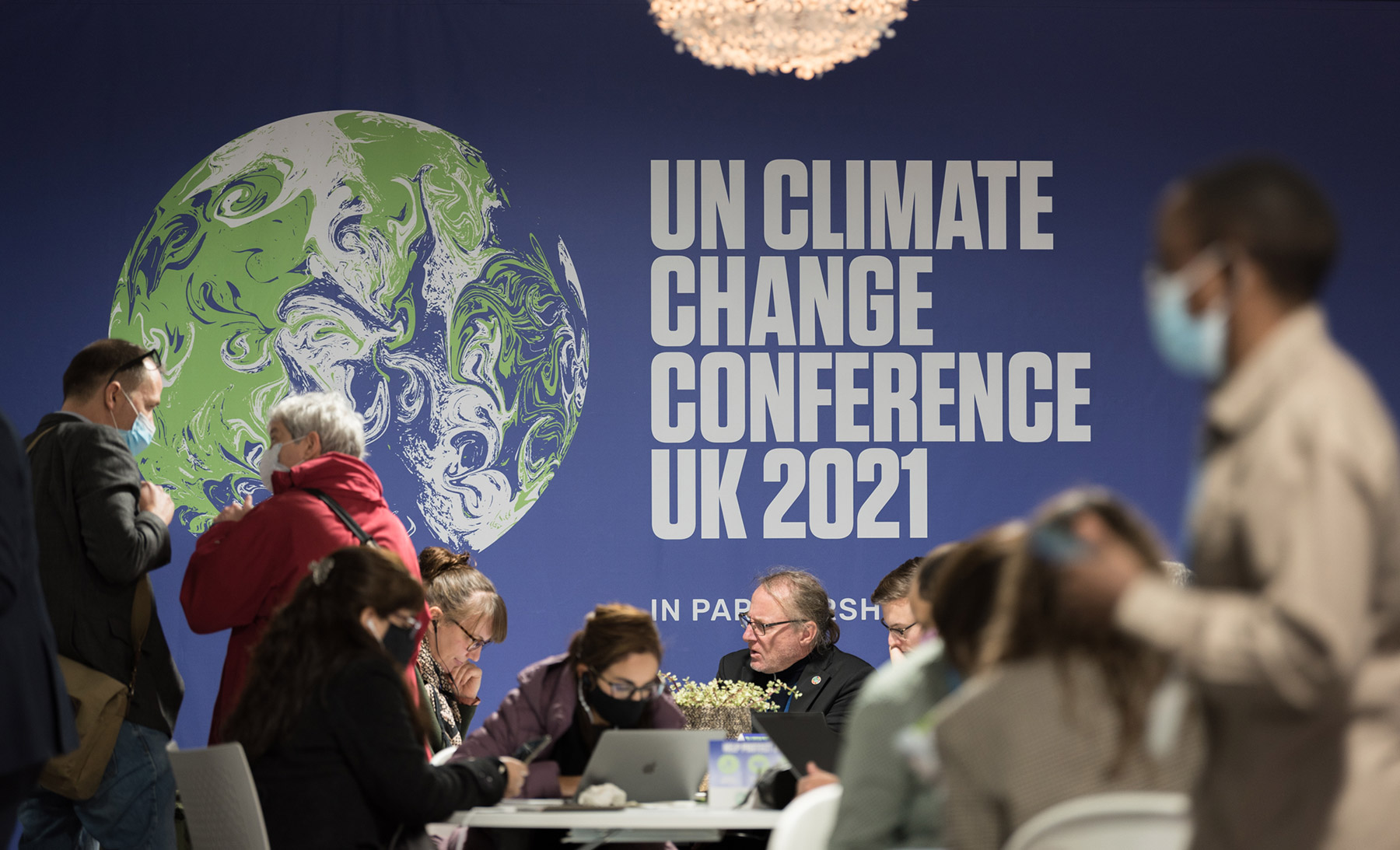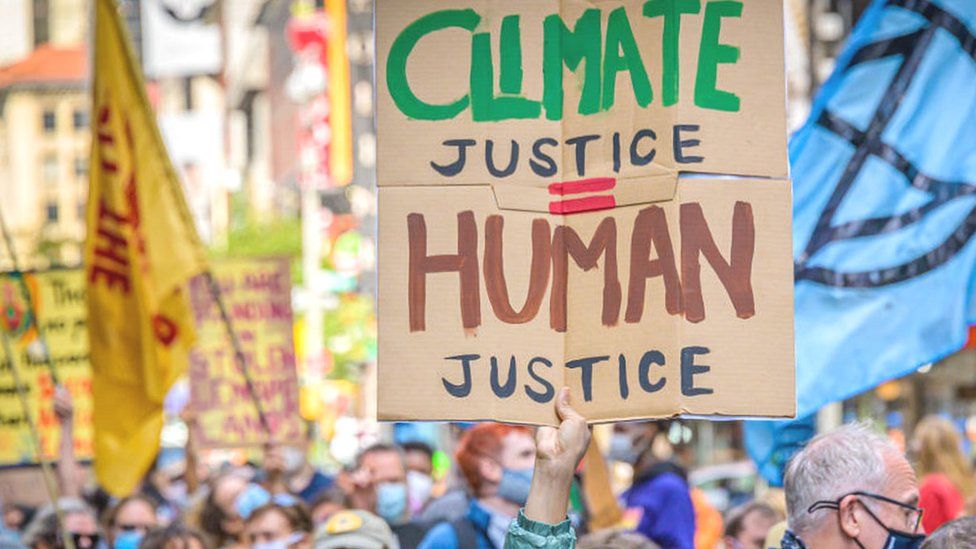The UK hosted the 26th UN Climate Change Conference of the Parties (COP26) in Glasgow last month. This is humanity’s attempt to solve the climate crisis. People may ponder and ask, what does Islam say about this? In two words, justice and survival. We cry and feel angry over the damage done to creation by humans and its impact on developing countries, making life even harder for them. Taking inspiration from The Majestic Quran, Muslims have a responsibility and should take the lead.

A beautiful yet broken world
“It is Ar-Rahman who taught the Quran. He created human beings, taught them the art of communication. The sun and the moon orbit in exact measure and plants and trees bow before Him. He raised the sky and established the scales of justice so you may not disturb the scales of justice. So, always give due weight and do not shortchange one another” (Rahman: 1-11).
That’s a stunning description of our planet. This is a world of awe-inspiring beauty, a world that Allah has created with enormous biodiversity, it’s big and beautiful. The Quran shows that humans and nature are closely linked like a chain. The environmental crisis is not alone, racial injustice, gender inequality are all signs of human wrongdoings. The climate crisis stands out because it is wreaking havoc in our world, putting millions of lives at risk. It’s intensifying global threats such as extreme weather events, sea-level rising and melting glaciers.
The overwhelming scientific consensus is that this is a human-made problem, driven by the burning of fossil fuels, releasing heat-trapping gases such as carbon dioxide. Since the start of the industrial revolution in 1750 the massive use of fossil fuel has resulted in spouting billions of tonnes of CO2 into the atmosphere, this has wreaked havoc in the ecosystem, it has raised carbonic acid in oceans so the seas are acidic, the blanket of CO2 in the sky has raised the earth’s temperature by 1.5 degrees celsius, pollutants have destroyed the Ozone layer exposing the earth to fatal Ultra-Violet rays. The industrial world has created a consumer society that doesn’t care about its waste. It’s made a civilisation that is greedy and overconsumes unashamedly. This way of life is fundamentally contrary to Allah’s plan for the world, ‘we’re reaping what we’ve sown.’
Climate change is a justice issue

The climate crisis will affect everyone in our global village, but the poor will be hit first and worst. The rich countries have floodgates, air conditioners, refrigerators, plenty of fertile land for growing crops etc. But the poor will suffer as they will face droughts, wildfires and famines. We are already seeing the impact of rising sea levels on the coastal areas of Bangladesh where nearly half a million poor people are being displaced yearly as their villages are going under the sea.
As the representatives of Allah on earth, what kind of reps are we who have destroyed the ozone layer, pumped billions of tonnes of CO2 into the atmosphere and created a blanket around the earth, ruining its fragile equilibrium?
Islam’s spiritual solution
We should be caretakers. Islam invites us to build a world civilisation that allows all to flourish – one that enables us to live in harmony with the rest of creation. To achieve this and stop further harm to our global village. The good news is that the climate crisis can be reversed, insha-Allah. So, let’s work to restore Allah’s creation to its previous health. The beloved Prophet (peace be upon him) is aptly called ‘the source of kindness for all communities’ not just humans but the natural world too. The climate crisis is the greatest challenge humanity has ever faced. Humanity has to unite for a breakthrough in this crisis.
Abu Sa’id al-Khudri reported that the Prophet (peace be upon him) said, “The world is sweet and green, and verily Allah is going to make you vicegerents in it in order to see how you act” (Muslim). Based on this hadith, one of the lessons we can extract is that the Prophet (peace be upon him) showed much care and concern towards the environment and aimed at caring and protecting it wholeheartedly. Through this hadith, he (peace be upon him) reminds us how we are all vicegerents with a great duty to serve Allah.
Here is what a young Muslim environmentalist suggests Mosques should do:
- Reinvigorate the teachings of scriptures on the care of creation in their teachings, talks and sermons.
- Actualise these teachings by promoting Earth stewardship and sustainable living to congregations and communities.
- Encourage the ‘greening’ of places of worship, community centres and spaces where people gather, so that they minimise the impact on natural resources.

Prayer for saving the earth
Oh Mighty Creator and Sustainer, we thank you for this amazing earth. Thank you for the scientists who discovered the climate crisis and are tackling it. We pray for the suffering animals, birds and fish. We pray for the people of Bangladesh whose homes are going under sea. Lord protect them. We seek forgiveness for the sins of destroying this beautiful world, forgive us for the ways that we’ve pillaged the earth. Give us wise and pious leaders with foresight to heal this sickness. Loving and caring Lord give us the wisdom to undo the wrongs of the past. Ameen!
***
Original Source: Dr. Musharraf Hussain




